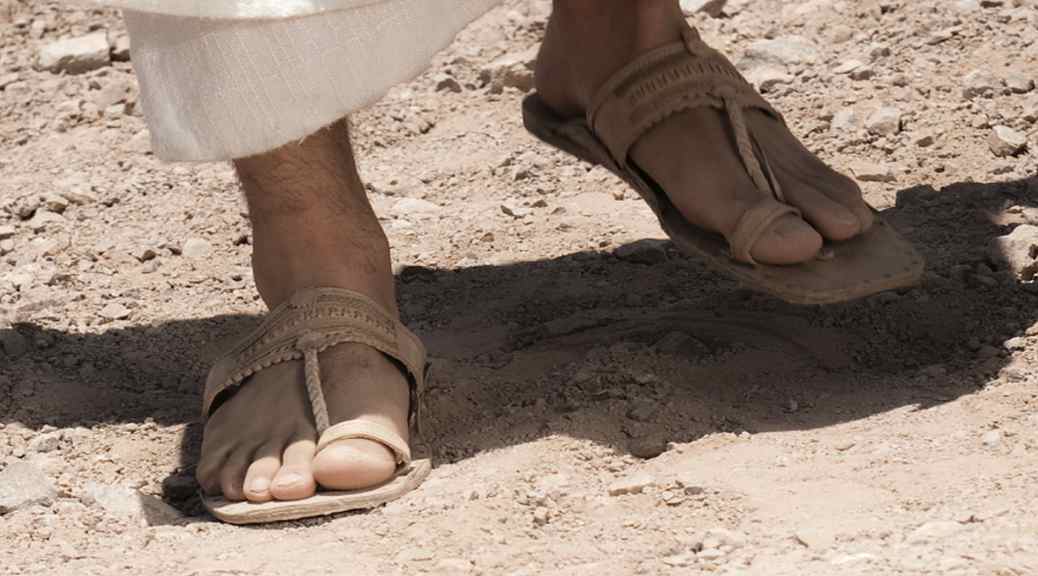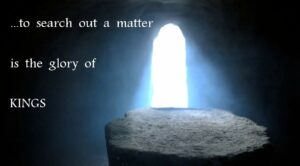Previous Post
For the prophet, obedience is of paramount importance to walk in the office, and to walk in God’s commission. Part and parcel of obedience is to remain obedient to the mandate. There are many prophets who want to do it all and they run around trying to accomplish all kinds of tasks. They are overzealous to the point of being disobedient, and once you are disobedient you become rebellious. A rebellious prophet treads on dangerous ground.
A prophet cannot simply go where he wants to go or say what he wants to say. A prophet needs to be assigned to a task by the Lord, and just so the words he speaks must be assigned and where he treads must be assigned. A prophet steps into dangerous territory if he forgets to be obedient at all times. A prophet must know his assignment, his task, and his duty, every day. He cannot do as he pleases, for this was the problem of the kings of Israel of old. A prophet does as the Lord commands, when the Lord commands, and how the Lord commands.
So while prophets may be called and then commissioned, do they truly know their mandate? Do they know what God has called them to do? Sure, you are a prophet, but what message are you called to deliver, to what target audience, and in what mode or form? Are you called to be a prophetic worshipper, or one standing on the watchtower, or are you called to speak over a nation or nations, or are you called to dream and share visions? Are you called to speak to the Body of Christ or the heathens, or are you called to equip other prophets or are you called to equip, train and teach prophetically? Are you called to speak judgment, to edify, or to correct or to restore?
The mandate applies to all believers, and for the prophet it is of critical importance. Each and every prophet is different, with a different message, a different style, and a different approach. It all depends on your mandate, and so we must make sure what is our mandate.
We will find in the Old Testament that the prophets did not just jump into the calling. They sought assurance from the Lord, and they moved in great humility. Moses had a number of excuses when the Lord called him, including that he was not qualified to fulfill his calling. Moses’s response after all to his calling was to say, “Who am I”. Exodus 3:11 tells us how Moses questioned his qualifications to lead the children of Israel out of Egypt. “And Moses, said unto God, Who am I, that I should go unto Pharaoh, and that I should bring forth the children of Israel out of Egypt?” Moses even questioned his calling because he cited a lack of knowledge. Exodus 3:13, “And Moses said unto God, Behold, when I come unto the children of Israel, and shall say unto them, The God of your fathers hath sent me unto you; and they shall say to me, What is his name? what shall I say unto them?”
Moses was so hesitant to step in his calling that in Exodus 4:1 he truly questioned his belief in his ability to fulfill his calling. And Moses answered and said, But, behold, they will not believe me, nor hearken unto my voice: for they will, say The Lord hath not appeared unto thee.” And also … Exodus 4:10, “And Moses said unto the Lord, O my Lord, I am not eloquent, neither heretofore, nor since thou hast spoken unto thy servant: but I am slow of speech, and of a slow tongue.” Moses even wanted the Lord to send someone else to do the Lord’s work, which led to Moses being assisted by Aaron.
Was Moses’ reaction all negative, or do we rather find a great sense of humility and a quest for certainty? After all, Moses repeatedly pressed the Lord if He had made the right choice. This reminds us that a prophet must always remain humble. A prophet is not some sort of superior and elite servant of God but only seeks the serve the Lord in truth and with integrity. Moses did not boast about himself, but rather wondered why would the Lord choose him.
We find in Numbers 17 how God assures the entire Israel that Aaron as the High Priest of the Levite’s is God’s chosen vessel, supported by the prophet Moses. At the time the people were constantly grumbling, with so many leaders of the 12 tribes wanting to take charge. So we read: 17 And the Lord spoke to Moses, saying: 2 “Speak to the children of Israel, and get from them a rod from each father’s house, all their leaders according to their fathers’ houses—twelve rods. Write each man’s name on his rod. 3 And you shall write Aaron’s name on the rod of Levi. For there shall be one rod for the head of each father’s house. 4 Then you shall place them in the tabernacle of meeting before the Testimony, where I meet with you. 5 And it shall be that the rod of the man whom I choose will blossom; thus I will rid Myself of the complaints of the children of Israel, which they make against you.”
It was of course the staff of Aaron that blossomed the next morning. Thus Aaron was also assured that God had called him for the task. This demonstration of God’s power is also testimony to how the true prophetic will always triumph over the counterfeit and whatever else may oppose the Lord’s work. In this case, the staff of Aaron blossomed, silencing the voice of those who opposed him, just as Aaron’s staff swallowed the staff of the Egyptian magicians. Thus God’s power and God’s intent, His will, and purpose shall never be silenced when it comes to the prophetic.
In Isaiah 6 we find the prophet crying out: “Woe is me, for I am undone! Because I am a man of unclean lips, And I dwell in the midst of a people of unclean lips; For my eyes have seen the King, The Lord of hosts.” Again we find great humility, for this is the mark of the prophet.
In Jeremiah 1, the prophet answered the Lord’s calling by saying: 6 Then said I: “Ah, Lord God! Behold, I cannot speak, for I am a youth.” His doubt and humility were answered by the Lord: 7 But the Lord said to me: “Do not say, ‘I am a youth,’ For you shall go to all to whom I send you, And whatever I command you, you shall speak. 8 Do not be afraid of their faces, For I am with you to deliver you,” says the Lord.
Gideon was one of the judges of Israel. He may not be regarded as a prophet according to the very definition, but he moved powerfully in such a manner that his actions were powerful prophetic manifestations. After all, his story (Judges 6-8) is remembered largely for the account of his leadership of the valiant 300 men and their destruction of the Midianite army, which brought 40 years of peace and relief from harsh Midianite oppression. What may be an even more interesting facet of this story is the need that Gideon had for assurance from God. Early on, Gideon asked three times for a sign, and later, God offered an opportunity for Gideon to gain some needed assurance.
So when it comes to the mandate of the prophet, assurance is most definitely needed. The prophet needs to know that he is on the right path and that he has been called. There is nothing wrong with asking for assurance. It simply means the prophet wants to make sure that he is doing what the Lord has mandated and ordained. So it is good to seek assurance, for it shows humility and a determination to know what is true and proper.
Of Ezekiel’s mandate we read in chapter 2: And He said to me, “Son of man, stand on your feet, and I will speak to you.” 2 Then the Spirit entered me when He spoke to me, and set me on my feet; and I heard Him who spoke to me. 3 And He said to me: “Son of man, I am sending you to the children of Israel, to a rebellious nation that has rebelled against Me; they and their fathers have transgressed against Me to this very day. 4 For they are impudent and stubborn children. I am sending you to them, and you shall say to them, ‘Thus says the Lord God.’ 5 As for them, whether they hear or whether they refuse—for they are a rebellious house—yet they will know that a prophet has been among them. 6 “And you, son of man, do not be afraid of them nor be afraid of their words, though briers and thorns are with you and you dwell among scorpions; do not be afraid of their words or dismayed by their looks, though they are a rebellious house. 7 You shall speak My words to them, whether they hear or whether they refuse, for they are rebellious. 8 But you, son of man, hear what I say to you. Do not be rebellious like that rebellious house; open your mouth and eat what I give you.”
Of Jeremiah’s mandate we read in chapter 1: “Behold, I have put My words in your mouth. 10 See, I have this day set you over the nations and over the kingdoms, To root out and to pull down, To destroy and to throw down, To build and to plant.”
Of Isaiah’s mandate we read in chapter 6: 6 Then one of the seraphim flew to me, having in his hand a live coal which he had taken with the tongs from the altar. 7 And he touched my mouth with it, and said: “Behold, this has touched your lips; Your iniquity is taken away, And your sin purged.” 8 Also I heard the voice of the Lord, saying: “Whom shall I send, And who will go for Us?” Then I said, “Here am I! Send me.” 9 And He said, “Go, and tell this people: ‘Keep on hearing, but do not understand; Keep on seeing, but do not perceive.’ 10 “Make the heart of this people dull, And their ears heavy, And shut their eyes; Lest they see with their eyes, And hear with their ears, And understand with their heart, And return and be healed.” 11 Then I said, “Lord, how long?” And He answered: “Until the cities are laid waste and without inhabitant, The houses are without a man, The land is utterly desolate, 12 The Lord has removed men far away, And the forsaken places are many in the midst of the land. 13 But yet a tenth will be in it, And will return and be for consuming, As a terebinth tree or as an oak, Whose stump remains when it is cut down. So the holy seed shall be its stump.”
Of Amos’ mandate we read the following in chapter 7: 14 Then Amos answered, and said to Amaziah: “I was no prophet, Nor was I a son of a prophet, But I was a sheepbreeder And a tender of sycamore fruit. 15 Then the Lord took me [j]as I followed the flock, And the Lord said to me, ‘Go, prophesy to My people Israel.’ 16 Now therefore, hear the word of the Lord: You say, ‘Do not prophesy against Israel, And do not spout against the house of Isaac.’ 17 “Therefore thus says the Lord: ‘Your wife shall be a harlot in the city; Your sons and daughters shall fall by the sword; Your land shall be divided by survey line; You shall die in a defiled land; And Israel shall surely be led away captive From his own land.’ ”
Consider Elijah, who God appointed as a man of the desert regions to go before kings, bringing the message of warning and repentance. We first read of Elijah in 1 Kings 17: Now Elijah the Tishbite, from Tishbe in Gilead, said to Ahab, “As the Lord, the God of Israel, lives, whom I serve, there will be neither dew nor rain in the next few years except at my word.”
About 870 BC, northern Israel’s decadence had become so evil that God stepped in. He called a “country boy” from the remote desert territory of Gilead to be His spokesman. Elijah was devoted to God; deeply concerned and grieved by the idolatrous behavior of his people. Elijah knew that God’s wrath toward Israel’s behavior was long overdue. The apostle James would later speak of Elijah’s faith saying, “Elijah was a man with a nature like ours, and he prayed earnestly that it would not rain, and it did not rain on the land for three years and six months. And he prayed again, and the heaven gave rain, and the earth produced its fruit” (James 5:17-18).
Like many of the prophets, Elijah did not seek to be God’s messenger. Instead, God chose him for the job. Once called, Elijah did not hesitate to take on his mission, even though it appeared that his life would be threatened by the wicked king. As a young man, Elijah embarrassed the petulant King Ahab, angered his wicked wife, Jezebel, rebuked a nation almost totally given over to idolatry, and proved that Baal was no god. Elijah was also the first prophet in Old Testament times to raise a person from the dead, while Elijah was also taken to heaven in a chariot of fire without experiencing death. Elijah was a prophet who thus stayed obedient to his mandate, to the point that Peter, James, and John saw Elijah on the mountain where Jesus was transfigured.
Elijah’s ministry lasted a mere 24 years, but he is considered to be one of the greatest prophets in Old Testament times. His greatness had nothing to do with his family tree, his education, his personal wealth, or his assets. In fact, James emphasizes this point by saying, “Elijah was a man just like us.” Elijah’s greatness stemmed from obedience. This is because he dedicated his life in service to God and glorified His holy name, especially at a time when such behavior was politically and religiously incorrect.
Now, let us consider the life of John the Baptist. We read of his mandate in Matthew 3: In those days John the Baptist came preaching in the wilderness of Judea, 2 and saying, “Repent, for the kingdom of heaven is at hand!” 3 For this is he who was spoken of by the prophet Isaiah, saying: “The voice of one crying in the wilderness: ‘Prepare the way of the Lord; Make His paths straight.’ ”
What is significant about John is the prophecy in Malachi 4:5,6: “See, I will send you the prophet Elijah before that great and dreadful day of the Lord comes. He will turn the hearts of the fathers to their children, and the hearts of the children to their fathers; or else I will come and strike the land with a curse.”
Malachi chapter 4 describes an impending judgment from God. This will occur on “the day” of ultimate reckoning. While Moses is representative of the Law, Elijah is representative of the prophets. John the Baptist would fulfill the “messenger” prophecy of Malachi 3:1 (Isaiah 40:3; John 1:23). Remember, it was John the disciple who denied that he was the prophesied “Elijah” of this verse in Malachi (John 1:21), not John the Baptist. It says in Luke 1: 3 But the angel said to him, “Do not be afraid, Zacharias, for your prayer is heard; and your wife Elizabeth will bear you a son, and you shall call his name John. 14 And you will have joy and gladness, and many will rejoice at his birth. 15 For he will be great in the sight of the Lord, and shall drink neither wine nor strong drink. He will also be filled with the Holy Spirit, even from his mother’s womb. 16 And he will turn many of the children of Israel to the Lord their God. 17 He will also go before Him in the spirit and power of Elijah, ‘to turn the hearts of the fathers to the children,’ and the disobedient to the wisdom of the just, to make ready a people prepared for the Lord.”
It also says in Matthew 11: 11 “Assuredly, I say to you, among those born of women there has not risen one greater than John the Baptist; but he who is least in the kingdom of heaven is greater than he. 12 And from the days of John the Baptist until now the kingdom of heaven suffers violence, and the violent take it by force. 13 For all the prophets and the law prophesied until John. 14 And if you are willing to receive it, he is Elijah who is to come.
It should also be noted that Jesus said that Elijah was still to come (Matthew 17:11), a statement made after John the Baptist’s death. Maybe Malachi had in mind a separate, later reappearance of Elijah, as in Revelation 11:1–13. This moment in the end times might involve Elijah himself or someone, like John the Baptist, who comes “in his power.” What is, however, clear is that John the Baptist appeared in the spirit and power of Elijah at the time of his ministry.
Keeping this in mind, in 1 Kings 19 (NKJV) we find Elijah escapes from Jezebel. 19 And Ahab told Jezebel all that Elijah had done, also how he had executed all the prophets with the sword. 2 Then Jezebel sent a messenger to Elijah, saying, “So let the gods do to me, and more also, if I do not make your life as the life of one of them by tomorrow about this time.” 3 And when he saw that, he arose and ran for his life, and went to Beersheba, which belongs to Judah, and left his servant there. 4 But he himself went a day’s journey into the wilderness, and came and sat down under a broom tree. And he prayed that he might die, and said, “It is enough! Now, Lord, take my life, for I am no better than my fathers!”
Did Jezebel complete her vow to do to Elijah what he did unto her and the false prophets? No. Yet, that vow was spoken in the spiritual atmosphere. Let us fast forward to the days of John the Baptist – a man in the spirit of Elijah – and who was also in the wilderness. Remember Jezebel could not get hold of Elijah because he was in the wilderness. In 2 Kings 9, we read how Elijah anointed Jehu as king of Israel (which formed part of the prophet’s mandate). In the same chapter from verse 30 to 37 we read of Jezebel’s violent death at the hands of Jehu. Thus Elijah appointed the king who would take the life of the one who had persecuted the prophet.
Yet, is this the end of the matter? In Mark 6 we read; 21 Then an opportune day came when Herod on his birthday gave a feast for his nobles, the high officers, and the chief men of Galilee. 22 And when Herodias’ daughter herself came in and danced, and pleased Herod and those who sat with him, the king said to the girl, “Ask me whatever you want, and I will give it to you.” 23 He also swore to her, “Whatever you ask me, I will give you, up to half my kingdom.” 24 So she went out and said to her mother, “What shall I ask?” And she said, “The head of John the Baptist!”
Let us understand that what was in operation here was the Jezebel spirit working through Herodias, who manipulated Herod just like Jezebel manipulated Ahab. And so the Jezebel spirit got the revenge upon Elijah for the spirit of Elijah was operating through John the Baptist.
We read the following in Matthew 14: At that time Herod the tetrarch heard the report about Jesus 2 and said to his servants, “This is John the Baptist; he is risen from the dead, and therefore these powers are at work in him.” 3 For Herod had laid hold of John and bound him, and put him in prison for the sake of Herodias, his brother Philip’s wife. 4 Because John had said to him, “It is not lawful for you to have her.” The question that needs to be raised is, was John the Baptist mandated to speak out against Philip’s wife, Herodias? This would imply he was around the palace to do so, instead of the wilderness. In the days of Elijah, the Lord protected the prophet against Jezebel, but here we find another prophet carrying the spirit of Elijah being legally handed over to the Jezebel spirit, and so the vow of Jezebel was fulfilled. This speaks of the legal right that was given for the execution of John. Was he therefore disobedient to God for speaking out, for this placed him in a position of being noted, arrested and thus recognized by the Jezebel spirit?
Whatever the truth of the matter, it reminds us to remain very close to the Lord, to remain obedient, and to remain truthful. We must be very careful what we speak, where we tread, where we go, and what we do, for there is a spiritual war going on and there is plenty of demonic activity seeking legal ground to devour God’s children, including the prophets. And a prophet can come under severe demonic attack if he steps out of his mandate and assignment, thus seeking his own will and way. Therefore a prophet must be careful not to be overzealous, for this can be very dangerous. A prophet can only speak as the Lord leads. This is why the prophet must be careful of pride and arrogance, thinking he can do as he wants. Scriptures prove the dangers of a prophet disobeying the Lord.
Regarding the appointment, in 1 Kings 19, we read how Elijah found Elisha son of Shaphat, and threw his cloak around him. Elisha was therefore chosen and mandated for a task. And so he followed Elijah until it was time for himself to step into his commission as a prophet. The first thing we see about Elisha is that he was a plowman. Here he was, plowing with his oxen to break up the tough rugged ground. He would remain a plowman to the end of his life although God had a whole new ‘ground’ in mind for Elisha. It wouldn’t be the hard natural ground that would concern Elisha after this point. God had an even harder ground for Elisha to plow. It would be the hard hearts of the Israelites themselves that Elisha would now be concerned with.
When Elijah threw his mantle around Elisha, the called prophet didn’t have to ask ‘what’s going on?’ He knew exactly what that meant. Mantles were typically made of animal hair and were generally worn by kings and prophets. They were symbolic of the owners calling, position, and authority. So Elisha didn’t have to ask Elijah what was going on. He knew. This was a passing of Elijah’s calling and position onto Elisha.
So from the passage, we see that God chose Elisha. Elisha was simply going about his normal daily business of plowing the fields when God came through his prophet Elijah and sought him out. We see also the seriousness of Elisha’s response. How seriously did Elisha take this call from Elijah? Well, this is answered when we read how Elisha slaughtered his oxen as a sacrifice and burnt the plowing equipment to cook the meat. There was therefore no going back. In doing this we see a great example of someone leaving behind the old life when the call of God comes. Jesus said it well (as normal) “No one who puts his hand to the plow and looks back is fit for service in the kingdom of God.” (Luke 9:62).
Let us read 2 King 2:1-6 Elijah Ascends to Heaven: 2 And it came to pass, when the Lord was about to take up Elijah into heaven by a whirlwind, that Elijah went with Elisha from Gilgal. 2 Then Elijah said to Elisha, “Stay here, please, for the Lord has sent me on to Bethel.” But Elisha said, “As the Lord lives, and as your soul lives, I will not leave you!” So they went down to Bethel. 3 Now the sons of the prophets who were at Bethel came out to Elisha, and said to him, “Do you know that the Lord will take away your master from over you today?” And he said, “Yes, I know; keep silent!” 4 Then Elijah said to him, “Elisha, stay here, please, for the Lord has sent me on to Jericho.” But he said, “As the Lord lives, and as your soul lives, I will not leave you!” So they came to Jericho. 5 Now the sons of the prophets who were at Jericho came to Elisha and said to him, “Do you know that the Lord will take away your master from over you today?” So he answered, “Yes, I know; keep silent!” 6 Then Elijah said to him, “Stay here, please, for the Lord has sent me on to the Jordan.” But he said, “As the Lord lives, and as your soul lives, I will not leave you!”
We saw earlier that Elisha had forsaken all to follow Elijah and minister to him. He was willing to submit himself to the will of Elijah and follow him wherever he went. In 2 Kings 2, at each stage, Elijah tells Elisha to stop and not to go any further with him. At each stage, Elisha’s determination to press on and not leave Elijah is seen. Elisha was determined to walk in his mandate and calling. Truly, a prophet must be passionate, convicted, and determined to maintain the course as Elisha maintained his course by accompanying Elijah. This should be the heart cry of the prophet, to follow the Lord and to be obedient and faithful unto the assigned mandate.
In I Samuel 3 we read of Samuel’s calling. At the time Samuel worked under Eli in the service of the shrine at Shiloh. Once Samuel responded to the Lord’s call, the Lord told him that the wickedness of the sons of Eli had resulted in their dynasty being condemned to destruction. In the morning, Samuel was hesitant about reporting the message to Eli, but Eli asked him honestly to recount to him what he had been told by the Lord. Upon receiving the communication, Eli merely said that the Lord should do what seems right unto him.
We also read: 19 So Samuel grew, and the Lord was with him and let none of his words fall to the ground. 20 And all Israel from Dan to Beersheba knew that Samuel had been established as a prophet of the Lord. Samuel grew as a prophet because he remained obedient and faithful. And so we read that the Lord let none of his words fall to the ground. This means all that God spoke through Samuel came to pass because of the prophet’s obedience.
Of his mandate, Samuel fulfilled different roles as a prophet. He was for example a key figure in keeping the Israelites’ religious heritage and identity alive during Israel’s defeat and occupation by the Philistines. After 20 years of oppression, Samuel, who had gained national prominence as a prophet (1 Samuel 3:20), summoned the people to the hill of Mizpah and led them against the Philistines. The Philistines, having marched to Mizpah to attack the newly amassed Israelite army, were soundly defeated and fled in terror. The retreating Philistines were slaughtered by the Israelites. The text then states that Samuel erected a large stone at the battle site as a memorial, and there ensued a long period of peace thereafter.
Samuel was of course also a king-maker. Samuel initially appointed his two sons as his successors; however, just like Eli’s sons, Samuel’s proved unworthy. The Israelites rejected them. Because of the external threat from other tribes, such as the Philistines, the tribal leaders decided that there was a need for a more unified, central government and demanded Samuel appoint a king so that they could be like other nations. Samuel interpreted this as a personal rejection, and at first was reluctant to oblige, until reassured by a divine revelation. He warned the people of the potential negative consequences of such a decision. Samuel first anointed Saul to be king, followed by David.
As a prophet of the Lord, one must therefore make sure of one’s mandate, in order to walk in victory and to walk in God’s purpose.
On his journey of discovering his mandate, or when discovered, the prophet must always remain mindful to keep the journey. This is because the devil will do anything in his power to distract the prophet, to ensnare, enslave, to confuse, to discourage, and to even discredit.
The devil wants the prophet to be carnally minded, cynical, depressed, disillusioned, overwhelmed, and emotionally unstable. The devil does not want a prophet that is focused, determined, stable, and at peace with the Lord and himself.
In 1 Corinthians 9 Paul writes: 24 Do you not know that those who run in a race all run, but one receives the prize? Run in such a way that you may obtain it. 25 And everyone who competes for the prize is temperate in all things. Now they do it to obtain a perishable crown, but we for an imperishable crown. 26 Therefore I run thus: not with uncertainty. Thus I fight: not as one who beats the air. 27 But I discipline my body and bring it into subjection, lest, when I have preached to others, I myself should become disqualified. A prophet must adopt this mindset – run the race, fulfill it, and do so with certainty and strength in resolve. A prophet must discipline himself to remain committed, humble, dedicated, loyal, faithful, and obedient, always following the leading of the Holy Spirit.
The devil is constantly trying to entrap us through our thoughts (this is why 2 Corinthians is so important), through sin and carnality (this is why Galatians 5 verses 1 and 13 is prevalent), and through religion, traditions, legalisms, philosophies, and worldviews (for this reason 2 Corinthians 3 is important and also John 8). Again these things the prophet must guard and take note of.
Let us remember Matthew 7:15 (NKJV): 15 “Beware of false prophets, who come to you in sheep’s clothing, but inwardly they are ravenous wolves. A wolf in sheep’s clothing is of course an idiom of Biblical origin used to describe those playing a role contrary to their real character with who contact is dangerous, particularly false teachers. The New Testament is full of Scriptures regarding the false teachers and false prophets, and Jesus warned about the world in John 10. God is warning us to be careful of those with false intentions, false motivations, and ill intent, even though they appear godly.
Thus for the prophet, he must equally be careful with whom he associates, partners, mixes with, befriends, deals with, and even walks a path with it – in and out of ministry. 2 Thessalonians 3 comes to mind: 13 But as for you, brethren, do not grow weary in doing good. 14 And if anyone does not obey our word in this epistle, note that person and do not keep company with him, that he may be ashamed. 15 Yet do not count him as an enemy but admonish him as a brother.
A prophet should hold onto Psalm 1: Blessed is the man Who walks not in the counsel of the ungodly, Nor stands in the path of sinners, Nor sits in the seat of the scornful; 2 But his delight is in the law of the Lord, And in His law, he meditates day and night. 3 He shall be like a tree Planted by the rivers of water, That brings forth its fruit in its season, Whose leaf also shall not wither; And whatever he does shall prosper. After all, a prophet must listen only to the Lord, be in His counsel, and not listen to rumors, fables, myths, and heresies. A prophet must be spending a lot more time in the presence and counsel of God than in the counsel of man, for the prophet’s guidance and wisdom comes from God and not from man. After all, a prophet is not called to speak what man says but speaks only as the Lord leads.
For the Lord says many are coming in wolves’ clothing, and many are coming as the fowler to ensnare and to entrap and to lead us astray. Yet the prophet must be aware of such dangers, and the constant strategy of the enemy to distract the prophet, and eventually silence him. Discernment, and being aware flow from time spent with God, for there in the presence of the Almighty God grants spiritual vision, understanding, wisdom, and knowledge of how to tread, where to tread, and the seasons of all things.
Galatians 2 speaks about Paul’s journey to Jerusalem with Barnabas to present the gospel that he was preaching among the Gentiles. We read the following: 4 This matter arose because some false believers had infiltrated our ranks to spy on the freedom we have in Christ Jesus and to make us slaves. 5 We did not give in to them for a moment, so that the truth of the gospel might be preserved for you. So a prophet must be constantly aware of the threats against himself, against the church, and the strategic warfare employed by the enemy. This is vital in order for the prophet to overcome, to continue walking in victory, and to continue on the journey of his mandate.
The prophet must thus be aware and alert for many are infiltrating the ranks of the prophetic for the purpose of ensnaring, enslaving, and for the purpose of entrapping, and the purpose of caging. They will do so through false doctrines, false teachings, false agendas, and deceitful intentions, even downright occult intent, to devour and steal. They are agents of darkness. This reminds me of the Book of Jude which says: 8 Likewise also these dreamers defile the flesh, reject authority, and speak evil of dignitaries. 9 Yet Michael the archangel, in contending with the devil, when he disputed about the body of Moses, dared not bring against him a reviling accusation, but said, “The Lord rebuke you!” 10 But these speak evil of whatever they do not know; and whatever they know naturally, like brute beasts, in these things they corrupt themselves. 11 Woe to them! For they have gone in the way of Cain, have run greedily in the error of Balaam for profit, and perished in the rebellion of Korah.
The prophet must realize the enemy is on the prowl and he will devour those that slumber and who fall for his traps and snares. So the prophet must remain vigilant, be awake, discern at all times, test all things, and be led by the Spirit. For then the prophet shall continue the road and shall overcome. As the prophet spends time in the counsel of the Lord, then surely the Lord shall guard his heart and mind. The prophet must continually pray for discernment, guidance, wisdom, strength, and victory in the Name of Jesus.
As mentioned, the devil will try anything and everything to silence the prophet, to get the prophet to become disheartened and to become disillusioned. This is why the prophet must spend time with the Lord, grow in character, and grow spiritually, so he may remain vigilant and aware of the craftiness and the strategy of the devil. After all, the devil will use tactics such as intimidation, persecution, and rejection to silence the prophet, or at least to force the prophet to go astray in word and deed.
A prophet will often be opposed by the truth that he speaks – just look at the lives of Isaiah, Jeremiah, and Ezekiel – and on this journey, many will ridicule, mock, and even slander the prophet. Intimidation will always be great to silence, or to rather force the prophet to follow the masses, to fear man, and to adapt to the changes of the time. Yet the prophet can and must never allow himself to be intimidated. Just look at the life of Daniel who was thrown into the lion’s den, along with Shadrach, Meshach, and Abednego who endured the furnace of fire. They were not intimated, neither was Moses and of course, neither was Jesus.
We read of Jeremiah’s woes over his unpopular ministry as a prophet in chapter 20: 7 O Lord, You induced me, and I was persuaded; You are stronger than I, and have prevailed. I am in derision daily; Everyone mocks me. 8 For when I spoke, I cried out; I shouted, “Violence and plunder!” Because the word of the Lord was made to me a reproach and a derision daily. 9 Then I said, “I will not make mention of Him, Nor speak anymore in His name.” But His word was in my heart like a burning fire Shut up in my bones; I was weary of holding it back, And I could not. 10 For I heard many ]mocking: “Fear on every side!” “Report,” they say, “and we will report it!” All my acquaintances watched for my stumbling, saying, “Perhaps he can be induced; Then we will prevail against him, And we will take our revenge on him.” 11 But the Lord is with me as a mighty, awesome One. Therefore my persecutors will stumble, and will not prevail. They will be greatly ashamed, for they will not prosper. Their everlasting confusion will never be forgotten. 12 But, O Lord of hosts, You who test the righteous, And see the mind and heart, Let me see Your vengeance on them; For I have pleaded my cause before You. 13 Sing to the Lord! Praise the Lord! For He has delivered the life of the poor From the hand of evildoers. 14 Cursed be the day in which I was born! Let the day not be blessed in which my mother bore me! 15 Let the man be cursed Who brought news to my father, saying, “A male child has been born to you!” Making him very glad… 18 Why did I come forth from the womb to see labor and sorrow, That my days should be consumed with shame?
Jeremiah speaks here of his inner struggles to cope with the mandate of being a prophet. The words that Jeremiah spoke were met with great resistance, and so he was scorned, mocked, ridiculed, and even intimated. Jeremiah even cursed the day he was born, so grieved he was by the struggles he endured. Indeed, because of what Jeremiah spoke he had become a reproach and a derision daily. It is not easy to be a prophet and to keep the journey. There are great struggles, for one becomes often a reproach because of the Truth spoken. And yes, intimidation will be evident, along with constant demonic attacks. Yet the prophet must endure, and find his hope and strength in God.
For the prophet, it remains a journey of keeping guard over the gate of his heart and mind while the storms scream around him and the tormenters known on the door. Let us remember Mark 7: 17 After he had left the crowd and entered the house, his disciples asked him about this parable. 18 “Are you so dull?” he asked. “Don’t you see that nothing that enters a person from the outside can defile them? 19 For it doesn’t go into their heart but into their stomach, and then out of the body.” (In saying this, Jesus declared all foods clean.) 20 He went on: “What comes out of a person is what defiles them. 21 For it is from within, out of a person’s heart, that evil thoughts come—sexual immorality, theft, murder, 22 adultery, greed, malice, deceit, lewdness, envy, slander, arrogance, and folly. 23 All these evils come from inside and defile a person.”
The prophet should thus guard against deception and lies and falsehoods. Each and every prophet should stand guard and raise the alarms when the enemy tries to infiltrate. But if the enemy can draw us away from the ‘gates’, meaning away from the prophetic mantle/calling, or make the prophet apathetic, or make the prophet spiritually blind or deaf or mute, then who will raise the alarm?
Thus it says in Ezekiel 33: 7 “So you, son of man: I have made you a watchman for the house of Israel; therefore you shall hear a word from My mouth and warn them for Me. 8 When I say to the wicked, ‘O wicked man, you shall surely die!’ and you do not speak to warn the wicked from his way, that wicked man shall die in his iniquity; but his blood I will require at your hand. 9 Nevertheless if you warn the wicked to turn from his way, and he does not turn from his way, he shall die in his iniquity; but you have delivered your soul.
Thus, the enemy does not want the prophet to sound the alarm, thus the prophet fails in his mandate and thus the blood is on his hands. For a prophet stands his ground and remains standing on the watchtower, he shall surely cry out, and he shall surely warn, correct, encourage and declare God’s will which brings deliverance, hope, restoration, and even healing. Thus the devil wants the prophet to leave his post – thus his mandate – by turning a blind eye, or by becoming distracted or even becoming spiritually lethargic, apathetic, and even backslidden. Indeed, if the prophet is caught up in his own world of inner chaos and uncertainty, becoming spiritually blind and deaf, who then shall sound the alarm?
The prophet must thus remain mindful and aware of the devil’s schemes, for the devil also uses bribery and striking deals. The devil tries to distract the believer, and thus the prophet, with his bags of tricks. Idolatry, spiritual adultery, the gratification of the flesh, the exaltation of the Self, and the love for Self-will are means and ways how we become spiritually blind and deaf to the ways of God. And a blind and mute and deaf watchman is of no use. A distracted watchman is of no use. A slumbering watchman is of no use.
So yes, let the prophet keep the course, no matter the struggle or the intimidation or the persecution, for the Lord shall sustain just as he sustained Elijah when fleeing from Jezebel. A prophet must guard his heart, remain in the Truth, remain in the counsel of God, and remain in the Spirit, for then he shall walk in spirit and truth.
Next Post








